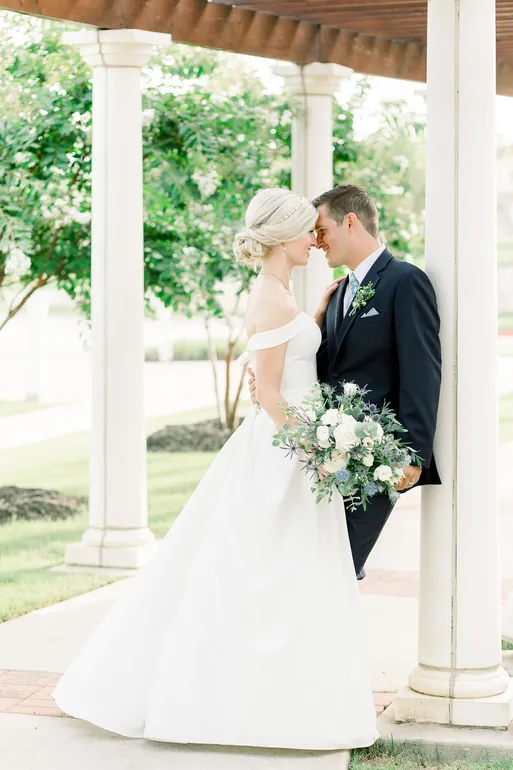Non-profit event planning is an exciting, yet challenging task.
You’ll need to consider countless details such as budgeting, scheduling, advertising, and more. To help make the process easier for you, we’ve compiled a list of questions that can guide your planning process. By asking these key questions at every step along the way, you can ensure that your event will be a success.
Read on to discover the essential questions you need to ask when planning a non-profit event.
Non-Profit Event Planning: Questions to Consider
1. What is the goal of the non-profit event?
The first step in organizing any event should involve considering the end goal.
- Raise money
- Secure new donors
- Increase awareness
Establishing a clear goal will give you a better understanding of what type of event you should be planning and what strategies can help you reach that goal.
2. How much time should be devoted to the planning process?
The amount of time needed for successful event planning can vary depending on the size and complexity of the project.
Generally speaking, however, it is wise to allow at least two months in advance of an event so that all arrangements can be made and any potential problems can be addressed.
In some cases, venue availability and other factors may call for extended planning time. So, take that into consideration.
Make sure to also factor in any time needed for promotion or marketing, and leave yourself some extra time to take care of unexpected issues that may arise.
RELATED: 16 Event Ideas for Non-Profit Organizations: How to Spread the Word and Raise Money
3. Who do you want your audience to be?
When it comes to non-profit events, knowing your audience is essential for success. Think about who your target audience is and strategize ways to attract them to your event. Write down the types of people that are likely to attend, such as local business owners, community members, donors, etc., so that you can tailor your event to their interests. Solicit the chairmen of the event that will bring the type of people you are seeking.
4. How to choose the best venue?
When planning a non-profit event, it’s important to choose the right venue.
Consider factors such as location, size, cost, accessibility, and amenities when evaluating different venues.
Make sure to also take into account any special requirements that you may have for staffing or equipment. Once you’ve narrowed down your selection, reach out to each venue and compare their packages in order to select the best one for your event.
HOT TIP: Get more bang for your buck by choosing a venue that gives back. Learn more about The Bowden’s mission >>
5. What is the non-profit event budget?
Once you’ve established the goals and audience for your event, it’s time to think about budgeting.
Consider factors such as venue costs, catering, entertainment, and any other expenses that may come up during the planning process. By setting a realistic budget upfront, you’ll be able to keep spending in check while still putting on an amazing event.
Think through who you could solicit for sponsorships to help with the costs such as a Bar sponsor or Food or Entertainment sponsor.
6. What type of promotion is necessary?
Promotion is key when it comes to successful event planning.
You need to make sure that people know about your non-profit event so they can attend! Come up with creative ideas for advertising in both online and offline formats, such as paper flyers, email campaigns, and social media posts.
Additionally, build relationships with local businesses that may be willing to lend a hand in spreading the word about your event.
7. What kind of entertainment is appropriate?
The success of any event largely depends on the level of engagement from attendees.
Think carefully about what type of entertainment you’d like to feature at your non-profit event and how it can contribute to meeting your goals. Your entertainment should be entertaining while still being relevant to the cause.
Consider a band, casino, live painting, or interactive games to keep people entertained.
RELATED: Unique Gala Ideas for the Ultimate Fundraising Event
8. What are the logistics?
Once you’ve determined the goals, budget, and promotion plan for your event, it’s time to focus on the smaller details.
Think about what types of vendors you will need to hire, such as caterers or photographers, and create a timeline that outlines when each task needs to be completed. Additionally, consider any special equipment that might be necessary for your event and make sure all necessary permits are acquired if needed.
RELATED: Choosing The Right Venue To Host Your Next Non-profit Fundraising Event
9. How will volunteers fit into the planning process?
Don’t forget to enlist the help of volunteers throughout the event planning process!
They can lend their support in a variety of ways—from helping with promotion to assisting in the setup and management of the event. Make sure that your volunteer team is organized and well-trained so that everyone knows their roles and can work together efficiently.
10. How will data from the event be used?
Once the non-profit event has been held, it’s important to analyze how successful it was.
Collecting data on attendance, donations, expenses, etc., will help you gain a better understanding of what worked and what didn’t during your event. This information can then be used to make adjustments for future events or plan more effective strategies next time around.
11. How can feedback from attendees be collected?
It’s also important to collect feedback from attendees after the event.
Ask questions about their overall experience and how they think it could have been improved. Send out an email request or have feedback forms available at the event. This will give you valuable insight that you can use to adjust your future events and ensure that attendees are having a positive experience at each one.
12. What is the best way to thank those who attended?
Finally, make sure you thank everyone who attended the non-profit event!
Sending out personalized thank you notes or emails is a great way to show your appreciation for their support and leave them with a positive impression of your organization. Additionally, this might encourage them to come back for more events in the future.
Non-profit events aren’t only about fundraising; they can also be used as a way to show appreciation for donors or volunteers. If that is the goal of your event, consider providing special gifts or experiences as part of the event.
By considering these questions before planning a non-profit event, you can ensure that your organization has the best chance of success.
More Considerations for Non-Profit Event Planning
Donor Appreciation
Donors are a big part of any non-profit’s success, so it’s important to show your appreciation during the event. Consider setting up a special area just for donors where they can mingle and network or providing incentives such as exclusive gifts or discounts on merchandise.
Volunteer Appreciation
Having enough volunteers is essential when planning any event. Make sure to thank your volunteers for their time and hard work by offering them refreshments, gift bags, or other incentives. These small tokens of appreciation will go a long way in ensuring that they continue to stay engaged with your non-profit organization.
These are just a few of the questions and considerations that should be taken into account when planning a non-profit event.
By asking the right questions and taking the time to plan ahead, you can ensure that your non-profit event is successful and has a positive impact on your organization.
Profits of all events held at The Bowden will benefit The Greater Keller Women’s Club Foundation, a 501(c)3 non-profit organization. The Bowden in partnership with GKWC is committed to building community by providing educational scholarships to deserving local area high school students, donations to local non-profit organizations helping families in need and in volunteering countless hours of service. When you host your event at The Bowden, you are helping to support this mission and improve the lives of those in need.













